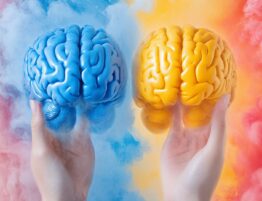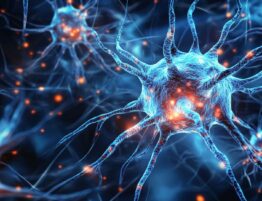Let’s talk about one interesting treatment approach. This is music treatment. Such a method addresses various physical, emotional, cognitive, and social needs. Music therapy is an effective tool for rehabilitation practice. It aids recovery for patients with brain injuries or neurological disorders. This treatment approach helps people recover after strokes, traumatic brain damage, or Parkinson’s disease. Therapists must engage patients in musical activities. So, they target specific areas of brain function. They promote neural plasticity and enhance cognitive abilities. Such activities also improve motor skills and emotional well-being. The rhythmic and structured nature of music is healing. It can improve motor coordination, speech, and memory.
Music also provides an outlet for emotional expression. It reduces anxiety and depression. Music treatment is a part of a holistic approach. It has shown promising results. Such an approach improves neurological rehabilitation outcomes. This benefit makes it an increasingly important component of therapeutic regimens. Its non-invasive and enjoyable nature allows for personalized interventions. This fosters motivation and active participation in the recovery process.
Understanding the Connection Between Music Therapy and Cognitive Function
Music treatment is significant in enhancing cognitive function for patients with neurological impairments. Music has the unique ability to stimulate multiple areas of the brain. It promotes neural plasticity and improves cognitive abilities. These are memory, attention, and problem-solving skills. This is especially valuable in rehabilitation. There, patients often experience cognitive deficits following brain damage or disorders. These are stroke, dementia, or traumatic brain injury.
Music therapy targets specific cognitive processes. This is through the structured use of rhythm, melody, and harmony. Some key therapeutic techniques used include:
- Rhythmic exercises: Engaging patients in rhythmic activities can improve attention. It increases sequencing and coordination. Rhythmic activities also promote memory retention.
- Melodic interventions: The use of familiar melodies or singing can enhance verbal memory. It improves language skills and recall. This therapeutic intervention is particularly helpful for patients with aphasia or memory loss.
- Improvisation and composition: Creating and performing music can encourage problem-solving skills. It also fosters creative thinking.
- Music-assisted relaxation: Soft, calming music can help improve concentration. It reduces cognitive fatigue and restores focus.
Music treatment can facilitate cognitive rehabilitation. It activates the left and right hemispheres of the brain. It strengthens neural connections. Such a tactic enables patients to regain or compensate for lost cognitive functions. The non-invasive, engaging nature of music therapy makes it an invaluable tool in the rehabilitation process. It offers holistic support for cognitive recovery.
How Music Therapy Enhances Emotional Expression in Neurological Rehabilitation
Music treatment offers a powerful way to enhance emotional expression. This is particularly important for patients who struggle with emotional regulation. This happens during neurological rehabilitation. It happens because of brain damage or disorders. Many individuals with neurological impairments find it difficult to express their feelings verbally. Music provides a non-verbal medium through which they can communicate complex emotions. This can be especially helpful for patients with conditions like stroke, traumatic brain injury, or dementia. There, emotional responses may be impaired.
There are key ways in which music treatment fosters emotional expression. They include:
- Improvisation and free-form music: Encouraging patients to create spontaneous music. It allows them to express emotions they may have difficulty verbalizing.
- Lyric-based interventions: Singing or listening to songs with relevant lyrics. It can help patients connect with their feelings and express emotions. These are grief, joy, or frustration.
- Rhythmic drumming or movement: Physical interaction with rhythm can help release built-up tension. It reduces anxiety, and improves mood.
- Active music listening: Listening to calming or familiar music can evoke emotional responses. It facilitates self-reflection and emotional release.
Music supports healing. It promotes emotional expression. It also contributes to a more positive and motivating environment. This is an essential aspect in rehabilitation. Emotional engagement is crucial in the overall recovery process.
Improving Motor Skills Through Music Therapy: A Key to Rehabilitation
Music treatment is an effective intervention for improving movement. This therapy incorporates rhythmic movement and instrument-playing activities. It helps enhance coordination, fine motor skills, and overall physical movement. All of them are often compromised after brain damage or neurological disorders.
The rhythmic nature of music activates the motor cortex and other areas of the brain. They are typically involved in movement. It fosters neural plasticity and strengthens the connections between the brain and muscles. There are some key ways music therapy supports motor skill improvement. They include:
- Rhythmic movement: Engaging in tapping or dancing to a beat can enhance coordination, and balance. It also improves gross motor function.
- Instrument playing: Playing drums, piano, or xylophones requires fine motor control. It helps to improve dexterity and hand-eye coordination.
- Therapeutic drumming: Percussion instruments encourage rhythmic tapping. It can improve hand strength, finger dexterity, and overall motor control.
- Guided movement: Therapists often use music to encourage specific movements. They aid in muscle control and range of motion.
Music stimulates the brain’s motor skills. It promotes the recovery of movement function. It provides a critical tool for improving physical outcomes.
The Role of Music Therapy in Brain Injury Recovery
Music treatment is vital in the recovery of individuals with brain damage. It offers many therapeutic benefits. They support the restoration of lost functions. These are speech, memory, and motor skills. This therapy engages the brain in structured musical activities. It promotes neuroplasticity. This aids in the reorganization of neural pathways. They may have been typically damaged due to brain injury. Music’s rhythmic and melodic structures help stimulate the left and right hemispheres. It facilitates cognitive and physical recovery.
The interventions used in therapy are highly personalized. They address specific impairments caused by injury. Some tailored interventions include:
- Speech therapy through song: Singing can help patients regain lost verbal skills. It improves articulation, fluency, and word recall. This is a key component of music therapy.
- Memory enhancement: Music-based exercises include recalling song lyrics or melodies. They can aid in memory retrieval and cognitive function.
- Motor skill recovery: Rhythmic exercises or instrument playing stimulate motor control and coordination. They improve fine and gross motor skills.
- Emotional regulation: Music provides a non-verbal medium for emotional expression. It reduces anxiety and depression. They are common in brain injury recovery.
Research supports the effectiveness of music treatment in rehabilitation. Studies have shown that patients who engage in therapy demonstrate improved cognitive outcomes. They have greater motor coordination, and enhanced emotional well-being. One study published in Brain Injury found that patients had better outcomes in speech and motor function. It is in comparison to those who received standard rehabilitation. Music therapeutic intervention offers a holistic and engaging approach. It significantly contributes to the rehabilitation process. It supports physical and cognitive recovery in individuals.
Music Therapy as Part of a Holistic Approach to Neurological Rehabilitation
Music treatment is an essential component of a holistic approach to rehabilitation. Working in tandem with other therapeutic interventions helps address the diverse needs of patients. It helps them to recover from brain damage or neurological disorders. Integrating music with physical, speech therapy, and psychological support is vital. A more comprehensive rehabilitation plan is created. It fosters recovery across cognitive, emotional, and physical domains.
In neurological rehabilitation, a multidisciplinary approach is crucial. It ensures that each aspect of a patient’s health is fully addressed. Music treatment complements other treatments in several key ways:
- Physical therapy: Through music, patients engage in rhythmic exercises. They improve motor coordination, balance, and movement. These activities can be easily combined with physical therapy. They reinforce movement. Music therapy promotes muscle strength and flexibility.
- Speech therapy: Music can be used alongside it to enhance communication. Singing can help patients regain verbal skills. Rhythmic and melodic patterns support language and speech production. Melodic intonation therapy, for example, is a useful technique. It helps patients with aphasia rediscover speech patterns through song.
- Psychological support: Recovery from a neurological condition can be emotionally challenging. Music therapy provides a safe outlet for emotional expression. It helps patients process complex feelings, such as grief, frustration, or anxiety. Music helps improve mood. It reduces the psychological burden of recovery.
- Cognitive therapy: Music also contributes to rehabilitation. It stimulates areas of the brain responsible for memory, attention, and problem-solving. Rhythmic exercises, memory-based music activities, and musical improvisation are vital. They can boost cognitive function and promote neuroplasticity. It assists in the recovery of lost cognitive abilities.
Music therapy should be integrated into a well-rounded rehabilitation plan. It supports the recovery of specific deficits. This treatment also enhances motivation, engagement, and emotional resilience. This holistic approach ensures that patients receive comprehensive care. It addresses the physical and psychological challenges of neurological rehabilitation.
Conclusion: The Future of Music Therapy in Neurological Rehabilitation
Music treatment enhances the rehabilitation outcomes for patients with neurological conditions. It offers significant benefits in cognitive function, emotional expression, and motor skills. Its integration into a multidisciplinary treatment plan fosters holistic recovery. This improves physical and psychological well-being. Ongoing research and technological advancements continue to explore new applications. The potential for expanding music therapy in rehabilitation is vast. It promises even more effective and personalized interventions for future patient care. To learn more about music therapy treatment options, contact us.













Please, leave your review
Write a comment: